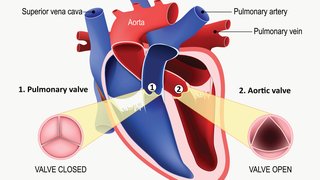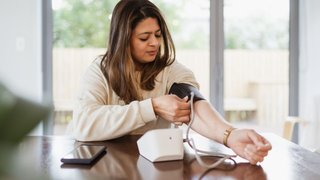
Millions of Americans take a daily, low-dose aspirin, hoping to reduce their likelihood of having a heart attack or stroke. For most individuals who have not had a heart attack or stroke, though, the risks of daily aspirin outweigh the benefits. For women in particular, there is little evidence that aspirin is beneficial to prevent a first heart attack or stroke.
Almost all of us have taken aspirin to ease a headache or reduce a fever at some point in our lives. Aspirins, first marketed by Bayer in 1899, have been an easily obtainable help for minor aches and pains for more than a century. Because aspirin is such a daily part of our lives, you might regard it as relatively harmless.
But all drugs – even those available without prescription – have some associated risks. Aspirin’s chief risk is increased bleeding.
Aspirin interferes with the clumping action of platelets, making the blood slower to clot. Drugs that affect the blood in this way are often referred to as blood thinners. For people who’ve already had a heart attack or stroke, this blood thinning benefit can significantly reduce the likelihood of another event.
However, millions of other people take a daily 81 mg aspirin hoping to prevent a first heart attack or stroke. Cardiologists call this primary prevention. But a number of recent studies of using aspirin for primary prevention show only minimal reductions in heart attacks. At the same time, those taking daily aspirin have an increased likelihood of major bleeding from the gastrointestinal tract or even intracranial bleeding.
As a result, health organizations are now revising their recommendations on aspirin use for primary prevention, steering patients and their physicians away from a low-dose aspirin regimen.
How can I determine if low-dose aspirin is right for me?
People who are now taking daily aspirin for primary prevention of heart attacks and stroke should have a conversation with their physician about whether or not to continue. You can prepare for this conversation by getting an estimate of your atherosclerotic cardiovascular disease risk with the American College of Cardiology’s Risk Estimator tool. It will ask you for your age, sex, race, cholesterol, blood pressure, and a few other medical questions, and it will gave you an estimated 10-year risk.
If your risk is above 7.5 percent, and you are not at high risk for bleeding, then low-dose aspirin may be reasonable for primary prevention for you. If your estimated risk is much lower than this, then your doctor will probably decide that the risks of daily, low-dose aspirin outweigh the benefits.
Either way, don’t make this change by yourself. Talk to your doctor first.











